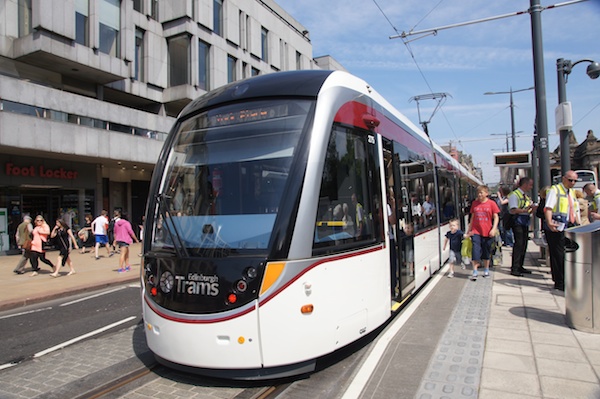Tram inquiry continues to gather evidence
 The Rt Hon the Lord Hardie who chairs the Edinburgh Tram Inquiry has announced that he inquiry has begun to interview members of the public about the trams project.
The Rt Hon the Lord Hardie who chairs the Edinburgh Tram Inquiry has announced that he inquiry has begun to interview members of the public about the trams project.
The inquiry contacted some individuals and organisations who responded to the call for evidence sent out in May last year, and some people identified during the document review stage as relevant.
Lord Hardie said: “If the Edinburgh Tram Inquiry is to provide a truly comprehensive account of the reasons behind, and the consequences of, the failure of the original project to be delivered on time and to budget and scope, then the evidence of those members of the public directly affected will be an essential part of my deliberations. This includes all of the evidence already submitted by the public, supplemented by the detailed statements that we are now in the process of obtaining.
“The Inquiry team has already begun to make contact with certain members of the public to seek their assistance. I have been heartened by the response received so far. The contributions of all who participate will be invaluable in ensuring that this Inquiry makes robust recommendations for future infrastructure projects of this scale and significance.”
Anyone else who wishes to speak to the inquiry is asked to come forward.
Members of the public wishing to provide evidence to the Inquiry are asked to contact the Inquiry team by calling 0300 244 1940, emailing info@edinburghtraminquiry.org or by writing to the Secretary of the Inquiry, 1st Floor, Waverley Gate, 2-4 Waterloo Place, Edinburgh EH1 3EG.
The official terms of reference for the Inquiry are to:
- Inquire into the delivery of the Edinburgh Trams project (‘the project’), from proposals for the project emerging to its completion, including the procurement and contract preparation, its governance, project management and delivery structures, and oversight of the relevant contracts, in order to establish why the project incurred delays, cost considerably more than originally budgeted for and delivered significantly less than was projected through reductions in scope.
- Examine the consequences of the failure to deliver the project in the time, within the budget and to the extent projected.
- Review the circumstances surrounding the project as necessary, in order to report to the Scottish Ministers making recommendations as to how major tram and light rail infrastructure projects of a similar nature might avoid such failures in future.